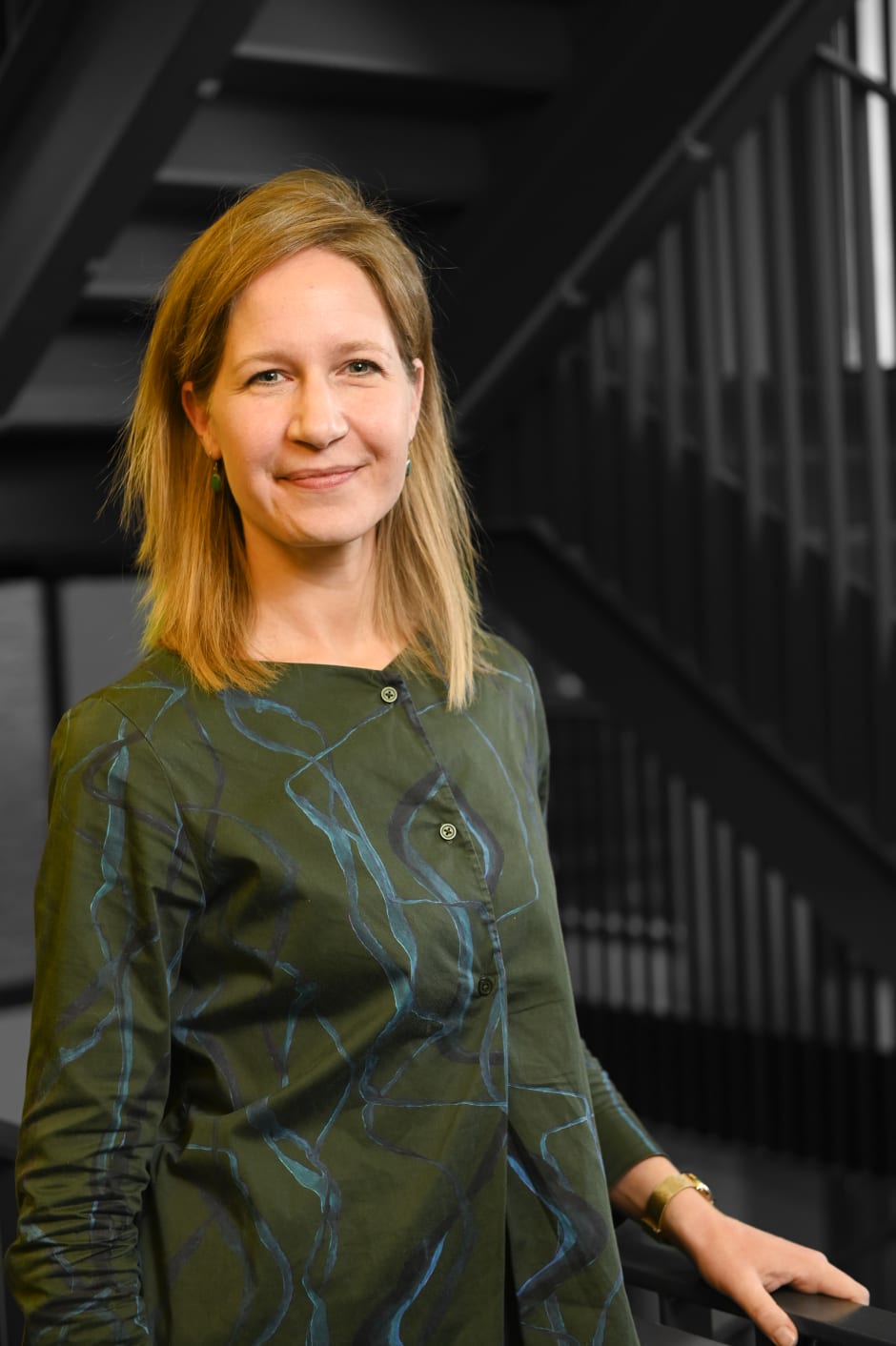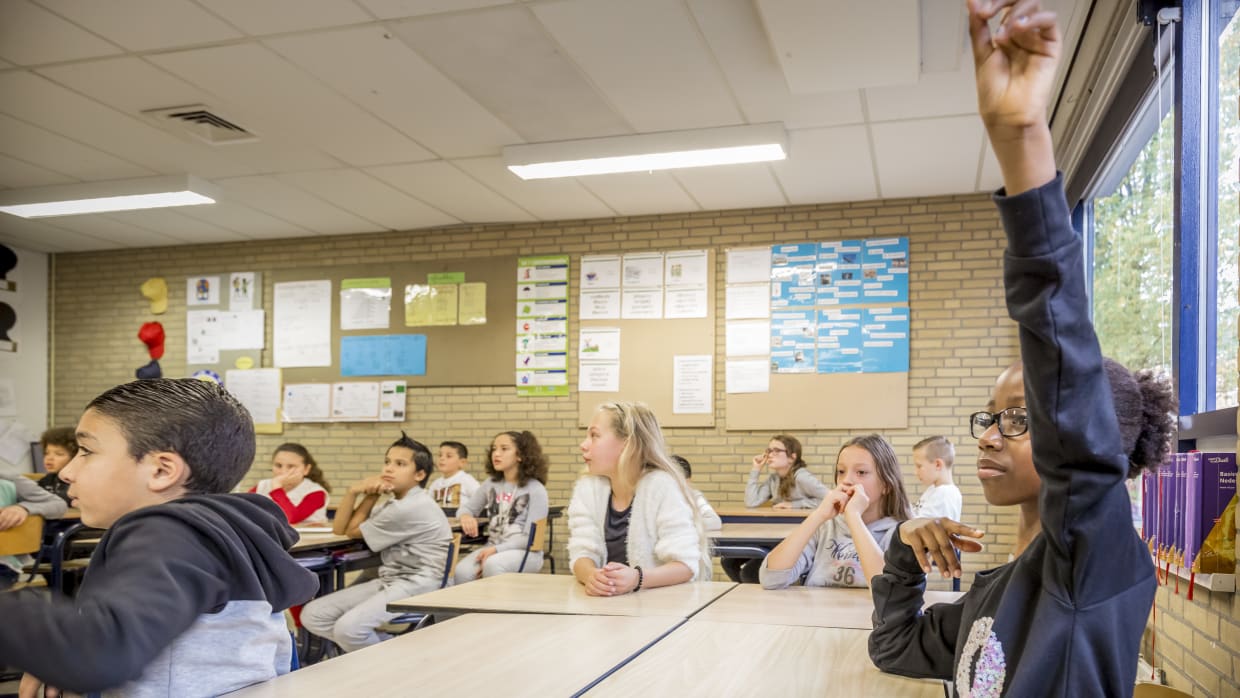
How should sensitive subjects be discussed in history class?
The Dutch history of slavery, the Holocaust, or the war in Israel and Gaza. These are some of the subjects that come up during history lessons in secondary schools. How do you make it possible to discuss these sensitive topics during class? UvA researcher Geerte Savenije is doing research on the subject.
Suppose you are a history teacher at a secondary school and the book the class is using raises the topic of the history of Israel. The students in your class each have their own ideas and feelings on the subject. How should you approach such a lesson? Using interviews with teachers and students and classroom observations, Geerte Savenije conducts research on how to discuss sensitive topics during history lessons in secondary schools. She also teaches at the teacher training program of the University of the Amsterdam (ILO).
What makes topics such as the Dutch history of slavery, the Holocaust, or the current tensions now in the Middle East so sensitive to discuss in class?
“It is mainly in the relationship of students to the subject. How do they relate to the past and what ties do they have to it? For example, do they have family members who died in a war or are victims of colonialism? This is different in every class. High school teachers try to deal with this as best they can by covering topics depending on the needs of the class. As you can imagine, that can be complex in a class with a diverse background. When dealing with difficult and sensitive topics such as the Dutch colonial slavery past or conflicts in the Middle East, a good relationship with the class is therefore very important, even more so than usual.”

How can teachers ensure that an atmosphere is created in the classroom in which such topics can be properly discussed?
“Teachers often have all kinds of wishes and ideas about what should be covered or how to broach certain topics. But if as a teacher you expect that a topic might be sensitive, it is very important to get a good view of who your students are. That’s nothing new, but it’s very important.”
“The first step is for the teacher to ensure a safe classroom climate, the basis of pedagogy. You have to make sure that every student feels safe and heard and that students know how to respond to one another. So in addition, it is very important to get to know your students better by, among other things, letting them speak a lot. Only then can you discover their sensitivities and needs to discuss certain topics. You can’t ignore that as a teacher.”
“Take, for example, the history of Palestinians and Jews. Because of current events, it is important that you sense or find out what different perspectives exist among students. Depending on the goals of your lesson, you can then choose a particular approach to make space to discuss students’ perspectives and emotions, for example, or to jointly explore what historical developments play a role in the current conflict.”
What skills do students need to develop to discuss sensitive issues in class?
“In my research, it is very clear that teachers find it very important that students learn how to deal with multiple perspectives. One of the most important skills is that students learn to recognize that you can think differently about something, and be willing to hear that from each other. Teachers can facilitate this by asking them what they base their perspective on and looking at what historical evidence there is so that students learn to understand the different perspectives as well.”
Do teachers get any help with this?
“There are all kinds of teaching modules that focus on skills teachers can use. We are also developing new teaching materials. For example, doctoral student Gijs van Gaans is currently working on an assignment for students in which they think about which objects or people from the past should be represented in a historical museum. So that touches on the question of “Who am I now?” and “What do I find important to preserve from the past?” With such an assignment, they learn to better understand their own perspective and that of others, and what that means in practice for museums.
“In addition, PhD student Stephan Venmans is developing a curriculum for history teachers to get students to think critically about various perspectives on the Middle East conflict. Central to this is the recognition of arguments and knowledge claims in controversies and the values associated with them such as justice and security. The goal of the program is for them to see how different values play a role in conflicts, such as the current conflict between Hamas and Israel. This skill is very complex but crucial for students.”
Does that include recognizing disinformation?
“Certainly. In history classes, at least, the key is for students to develop a critical attitude toward information and historical sources. What kind of information is it, where did the information come from, and is the information reliable? That also means teaching students to recognize when something is disinformation and when something is real.”
“For teachers, this topic is very complicated. After all, to have a good picture of disinformation, you have to know an awful lot about a subject. With the attack on Israel by Hamas on October 7th, for example, that was very difficult. Everyone was searching for good information. At the same time, students might get caught up in something over the weekend. As a teacher, you cannot always know immediately whether their feelings are based on facts or not and then how best to channel them in class. Teachers struggle with questions such as ‘Do I have enough knowledge?’ or ‘Can I offer enough background information to students?’ Utrecht University has launched a great initiative for this. On the website terinfo.nl, they offer a lot of background information and tips on how to deal with this as a teacher in the classroom, especially in the case of unexpected events such as on October 7th. Having knowledge of these types of initiatives and knowing how to use them can be very helpful in making sure you’re prepared the night before in any case.”

